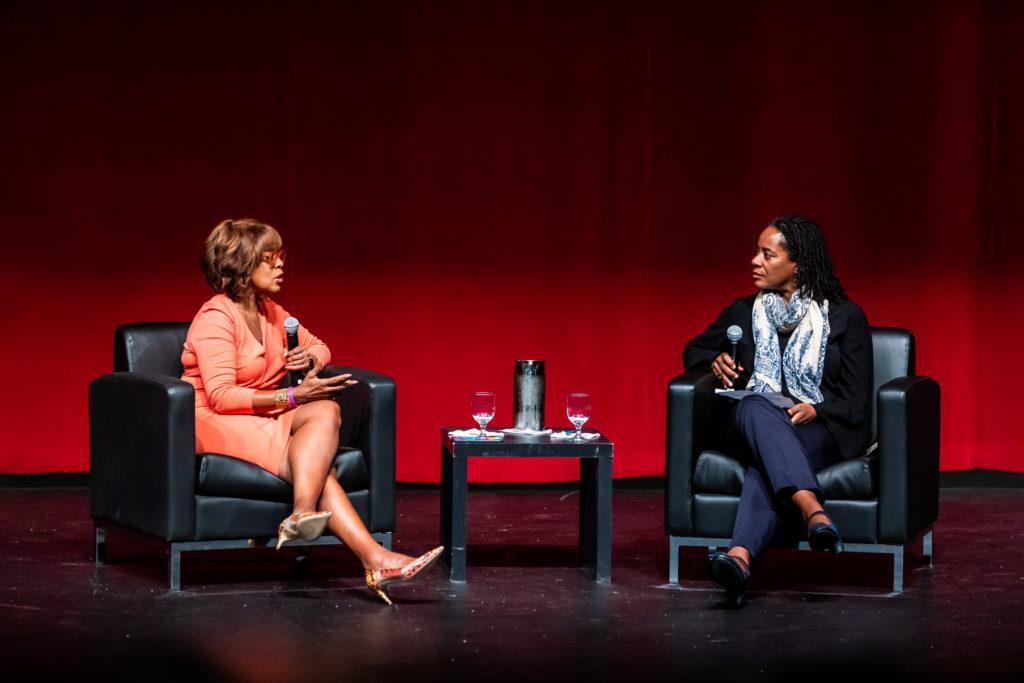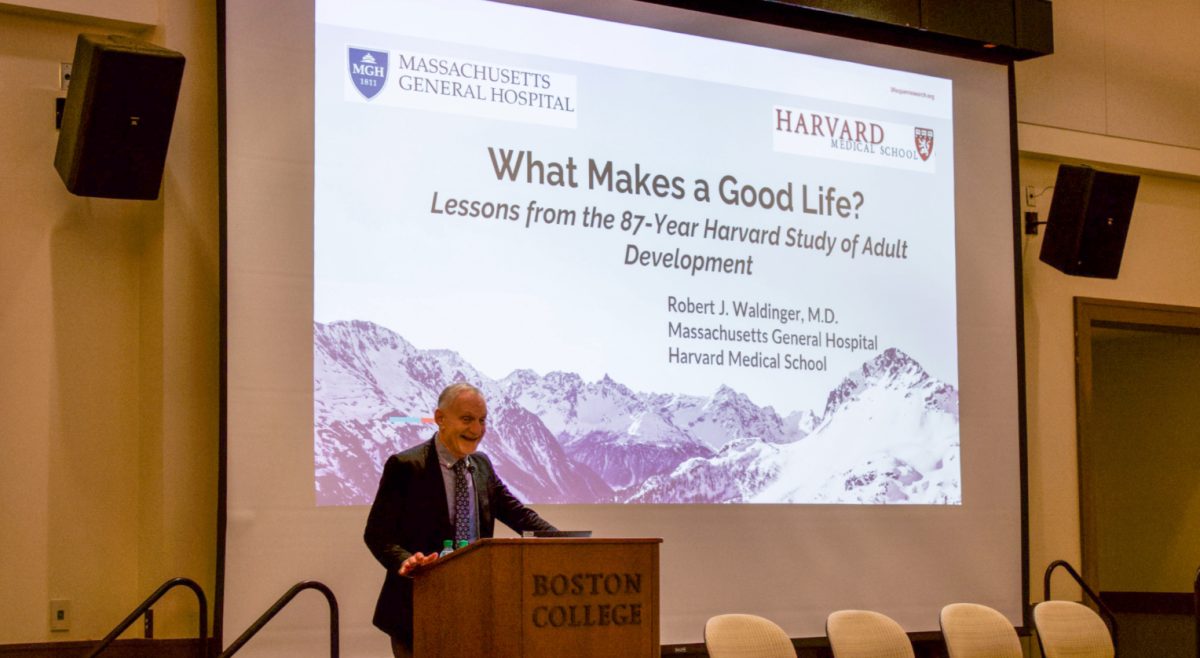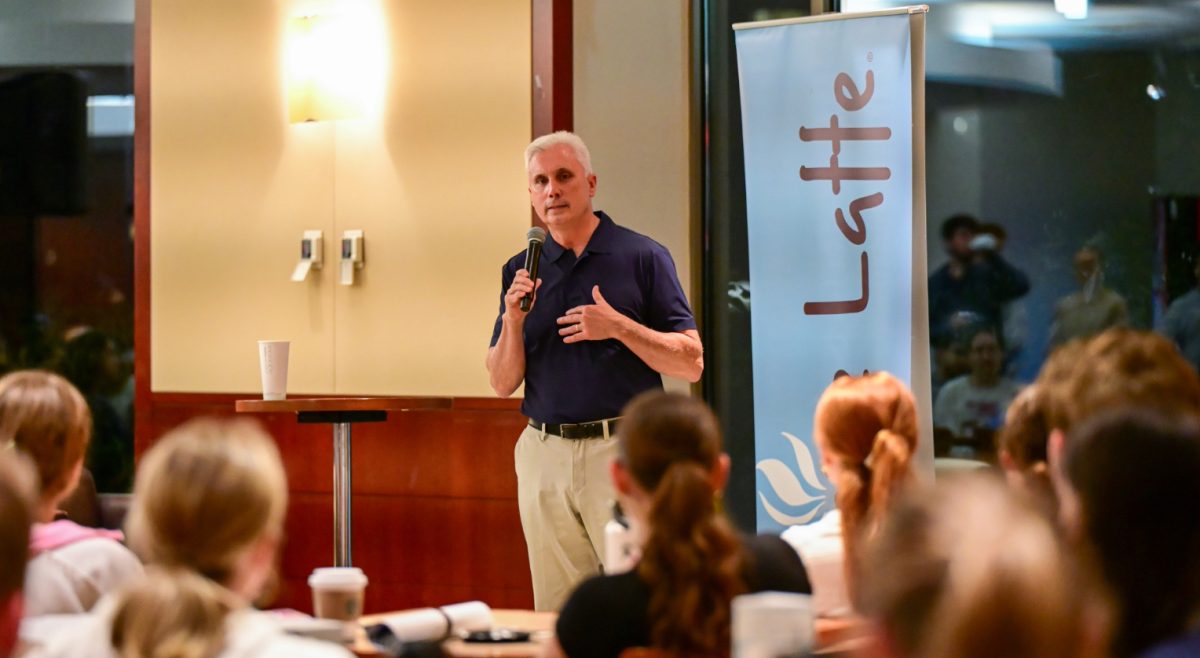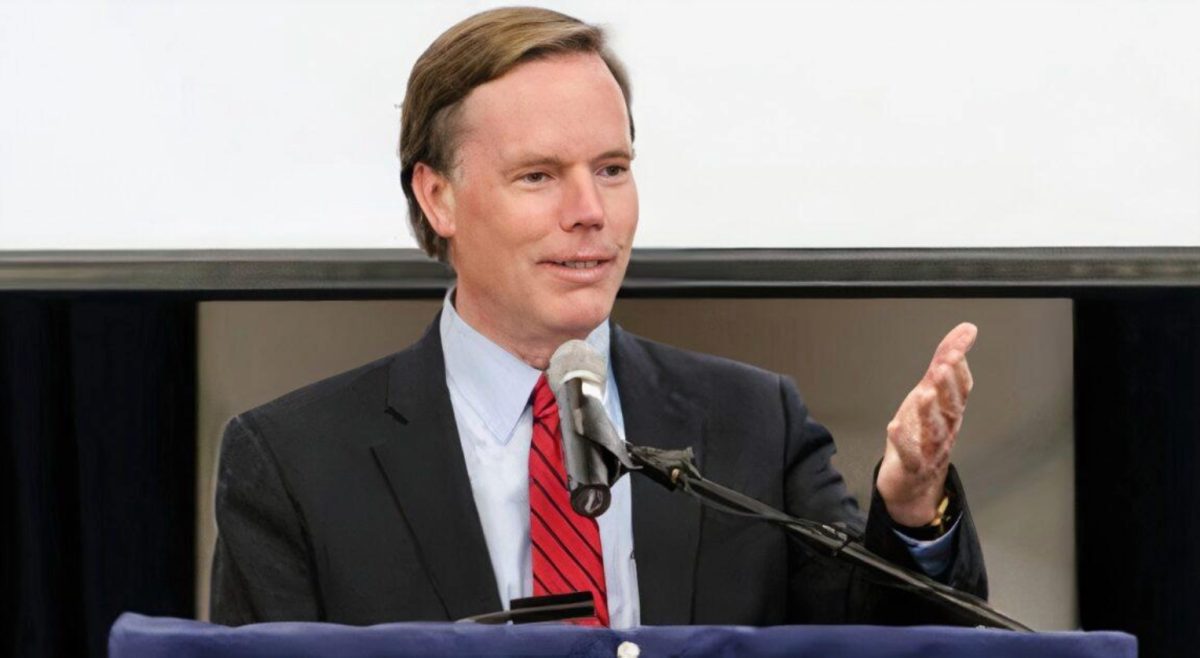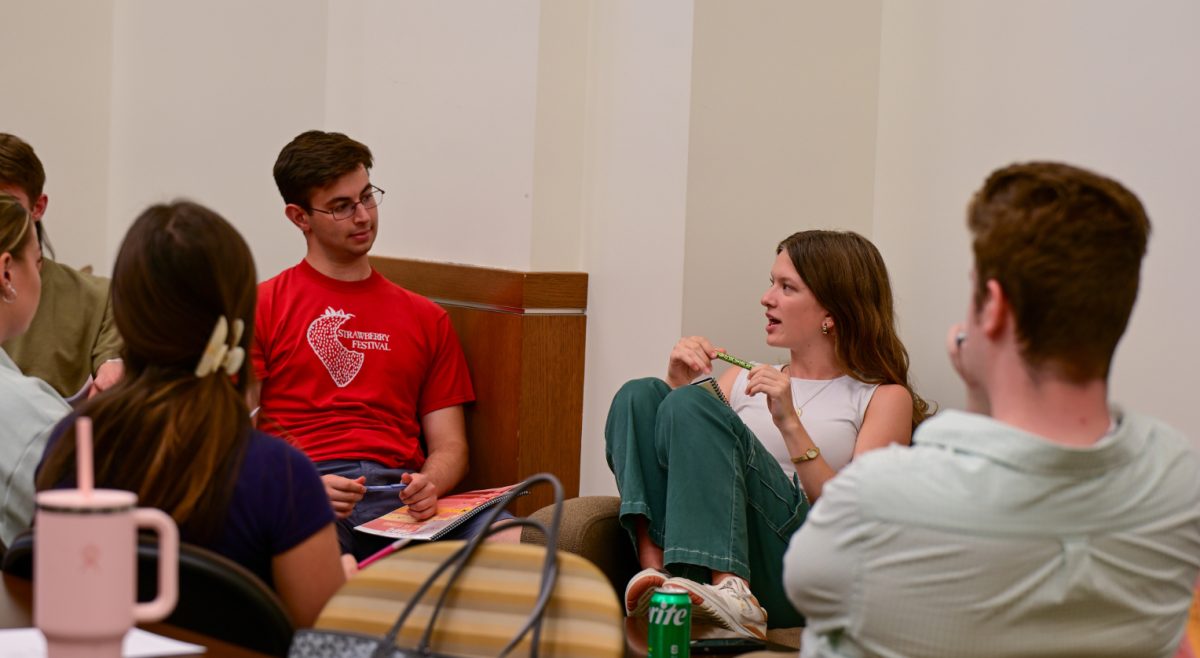Gayle King, co-host of CBS This Morning and editor-at-large of O, the Oprah Magazine, spoke about her career and and answered questions from BC undergrads at the fifth annual Council for Women at Boston College (CWBC) Colloquium on Oct. 17.
King opened her talk by commending BC’s student body on its unique energy.
“I walked into the student dining hall, and I just see everybody who’s so full of optimism and so full of life, and that’s really what college should be,” she said.
She said that when she entered college at the University of Maryland, she had no idea what to expect and no clue what she needed to learn—but she eventually decided to pursue psychology.
“I like listening to people’s problems, and I’m very good at giving unsolicited advice,” King said.
King was able to put her advice-giving skills to good use at the CWBC Colloquium, where she answered questions submitted by undergraduate students throughout a Q&A session moderated by Angela Ards, director of BC’s journalism program. The Q&A resembled a conversation between King and Ards, and the light-hearted interaction between the two elicited frequent laughter from the audience.
Ards asked a submitted question about King’s experience interviewing R. Kelly on CBS after the release of the documentary Surviving R. Kelly, which detailed the sexual abuse allegations against the singer-songwriter. The interview received significant media attention and was controversial, as King’s safety appeared to be compromised by the physical anger displayed by Kelly.
“I wasn’t thinking about myself,” King said. “I was thinking about the story.”
King said that journalists have to have a certain drive in order to capture the stories they’re chasing. But she said that she would never do certain types of journalism, such as being a war correspondent.
“I don’t have that gene, where I would knowingly put myself where I think I would be in harm’s way,” King said.
Ards then asked King how she has managed to sustain her dedication over the years.
“I so love what I get to do,” King said. “No two days are ever the same.”
King recalled her transition to the United States after living in Turkey for several years during her childhood. She remembered how TV—and news—were her favorite things, which was part of the reason she felt drawn to a future in broadcast journalism.
“I was working at a camera store … and this guy said to me, ‘You know, you have such a great voice, and have such a nice personality, have you ever thought about television?’” King said.
The man offered King an entry-level job that very moment, and she defined this instance as the one that kickstarted her 40-year career in broadcast journalism.
“I was in the newsroom, and I got hooked, and it was off to the races after that,” she said.
King then discussed how journalists have to be quick on their toes and make sure they’re getting their facts right, especially in today’s 24-hour news cycle.
King also said that journalists should find that “it factor” that makes their audience comfortable, since people want to watch people on TV with whom they feel comfortable. There is a difference between being obnoxious and being very confident, King said, which is something that can be a deciding factor in whether someone is well-liked as a public figure.
King said that in her job searches when she was younger, she had to be more diligent than the average unemployed news anchor. She would call news stations and introduce herself over the phone as Gayle King, a 27-year-old black woman, before asking if it was worth her time to send over a tape.
“I was signaling to [them] my age, race, gender,” King said. “People can’t hire you on that basis, but I knew if they had two or three women—black women—they’d never hire another. It’s just the way it was.”
King described how she got to be where she is today: She was a news anchor in Kansas City, Mo., then Hartford, Conn., before leaving to work with the Oprah Winfrey Network and the O magazine.
“And then you get a call one day that just changes everything,” King said in reference to the moment she was asked to co-host CBS This Morning. “They always say God can do a bigger thing than you can do for yourself and that is exactly what happened to me,” she said.
When Ards asked King who her role models were, King mentioned J.C. Hayward, the first female news anchor in Washington, D.C.; Pam Coulter, a current news correspondent for CBS; and finally, a nice pretzel stand worker at the mall.
“Kindness always works, and I’ve always wanted to be that type of person,” King said.
Featured Image by Jess Rivilis / Heights Staff

